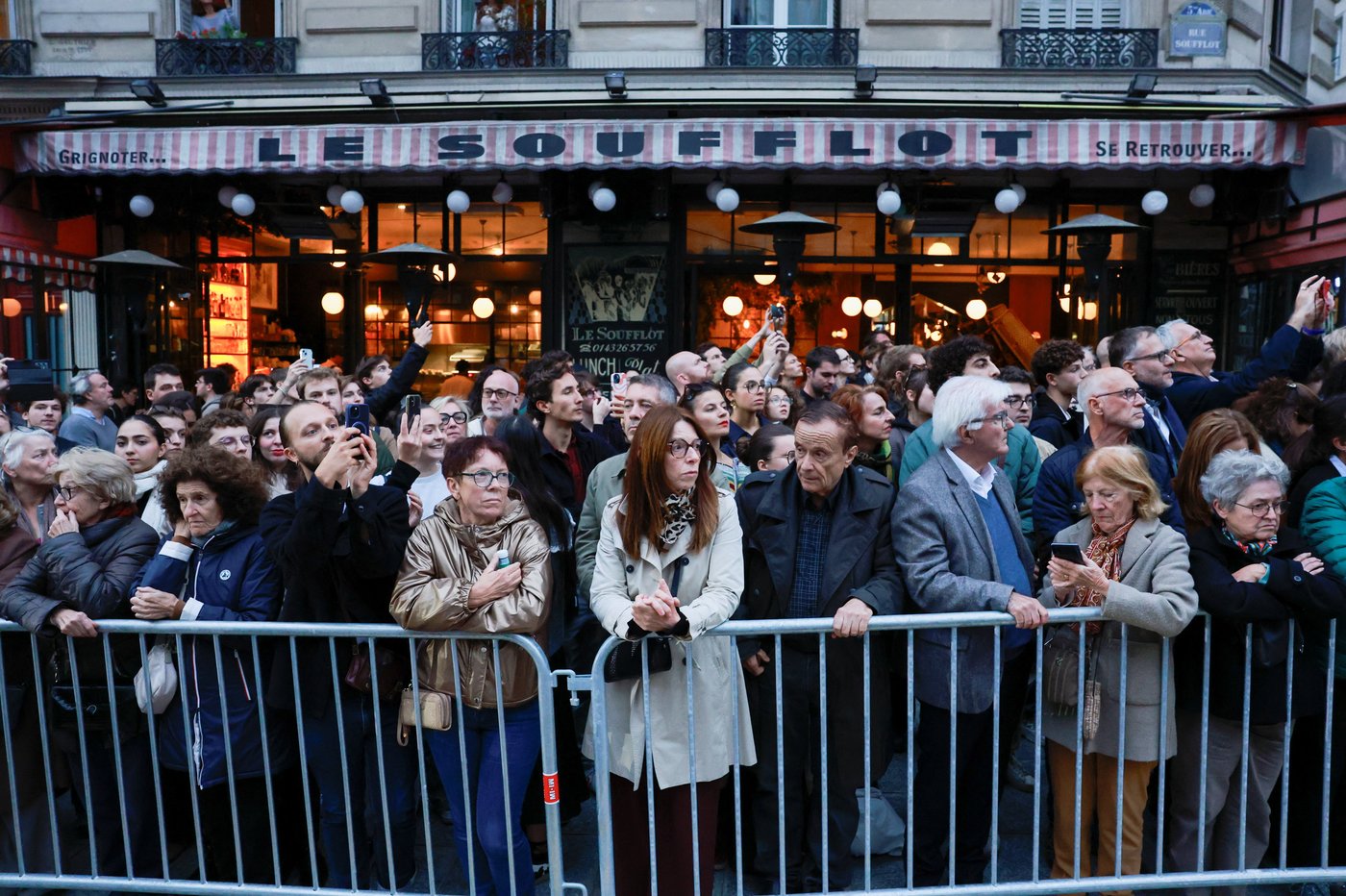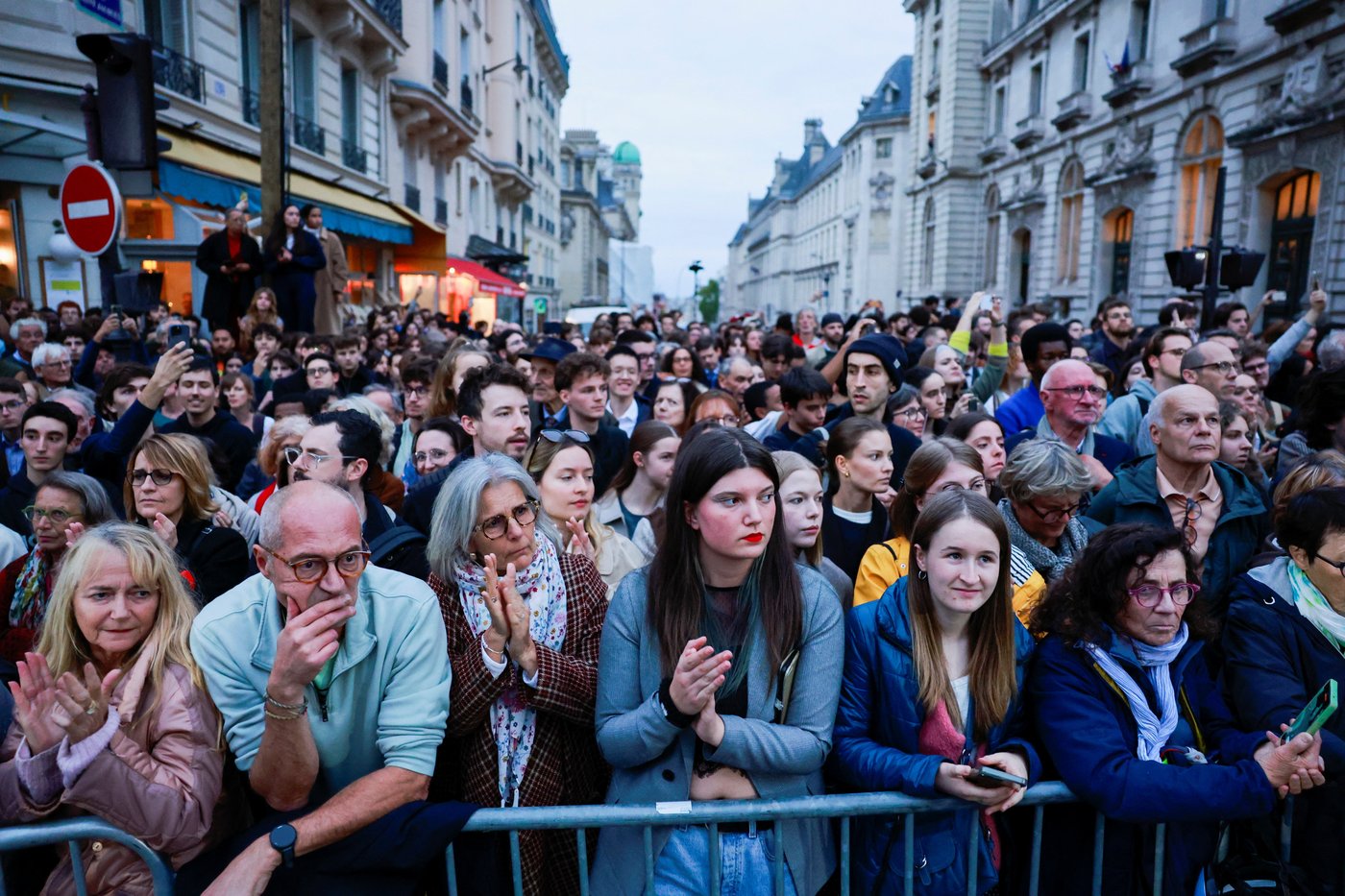
Tomb of former French Justice Minister Badinter defaced with graffiti before Panthéon ceremony
PARIS (AP) — The tomb of former French Justice Minister Robert Badinter, who was known for defending human rights and was inducted into the country’s Panthéon national monument Thursday, was vandalized in a cemetery close to Paris, officials said.
Badinter, who died last year at age 95, spearheaded the drive to abolish France’s death penalty and campaigned against antisemitism and Holocaust denial. It was also under Badinter’s watch that France decriminalized homosexuality.
Marie-Hélène Amiable, the mayor of Bagneux where Badinter was buried, said she learned Thursday that his tomb had been defaced with graffiti.
“The inscriptions discovered by the police denounce his commitments against the death penalty and in favor of the decriminalization of homosexuality,” Amiable said. “They are unworthy of this former minister and senator, who carried the historic advances that made it possible to abolish the death penalty in France in 1981 and to decriminalize homosexuality in 1982.”
French President Emmanuel Macron, who later presided over the ceremony at the Panthéon, wrote in a message on social platform X: “Shame on those who sought to tarnish his memory.”
“The Republic is always stronger than hatred,” Macron said.
A famed lawyer and thinker, Badinter was best known for his sustained push to end capital punishment. He described seeing one of his own clients lose his head to a guillotine, used up until the 1970s to kill criminals in France.
As justice minister under then-President Francois Mitterrand, Badinter overcame public opposition and won parliamentary support for abolishing the death penalty in 1981.
Born in Paris in 1928 to a Jewish family, Badinter saw Nazi horrors and France’s collaboration up close during World War II and lost his father in the Sobibor death camp. As a lawyer, he later pursued a notorious Holocaust denier in court.
Badinter went on to lead France’s Constitutional Court, served as a senator for 16 years and was seen as a moral compass for many in France for his defense of human rights.
Located in the heart of Paris, the domed Panthéon monument is known as the “temple of the great men and great women of the nation.” Badinter joined other French luminaries honored at the site, including philosopher Voltaire, scientist Marie Curie, writer Victor Hugo and French Resistance hero Jean Moulin.




Join the Conversation!
Want to share your thoughts, add context, or connect with others in your community?
You must be logged in to post a comment.


















